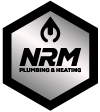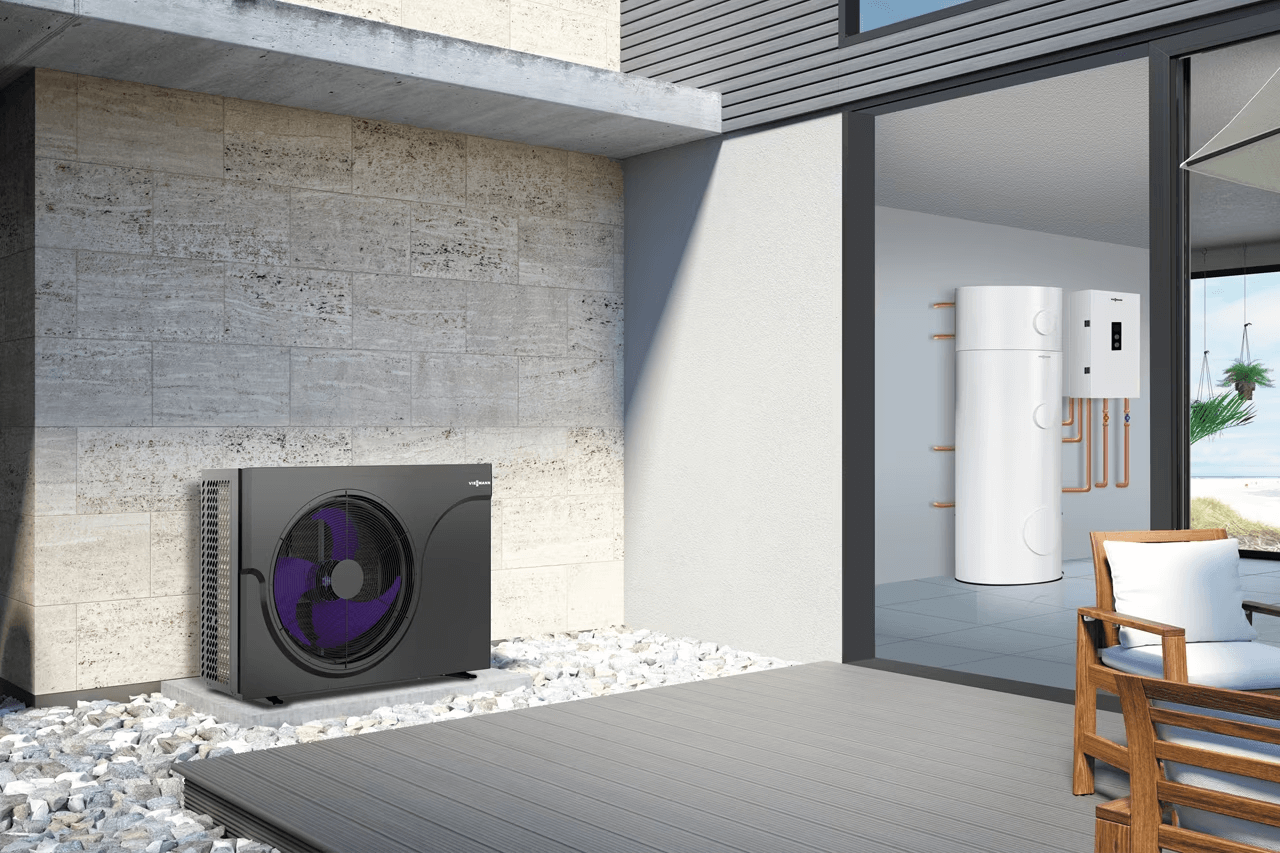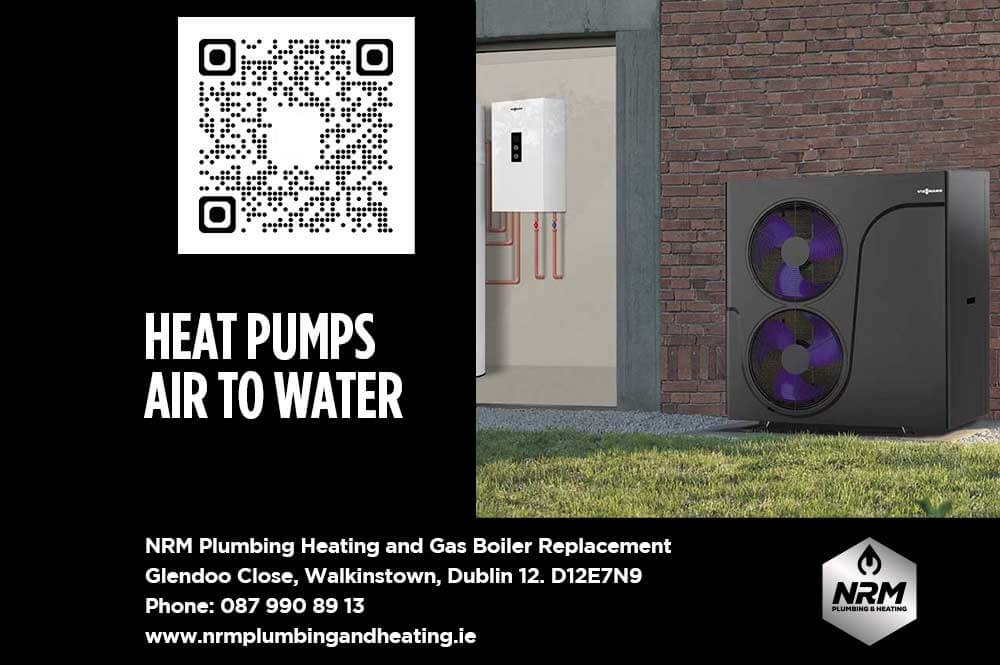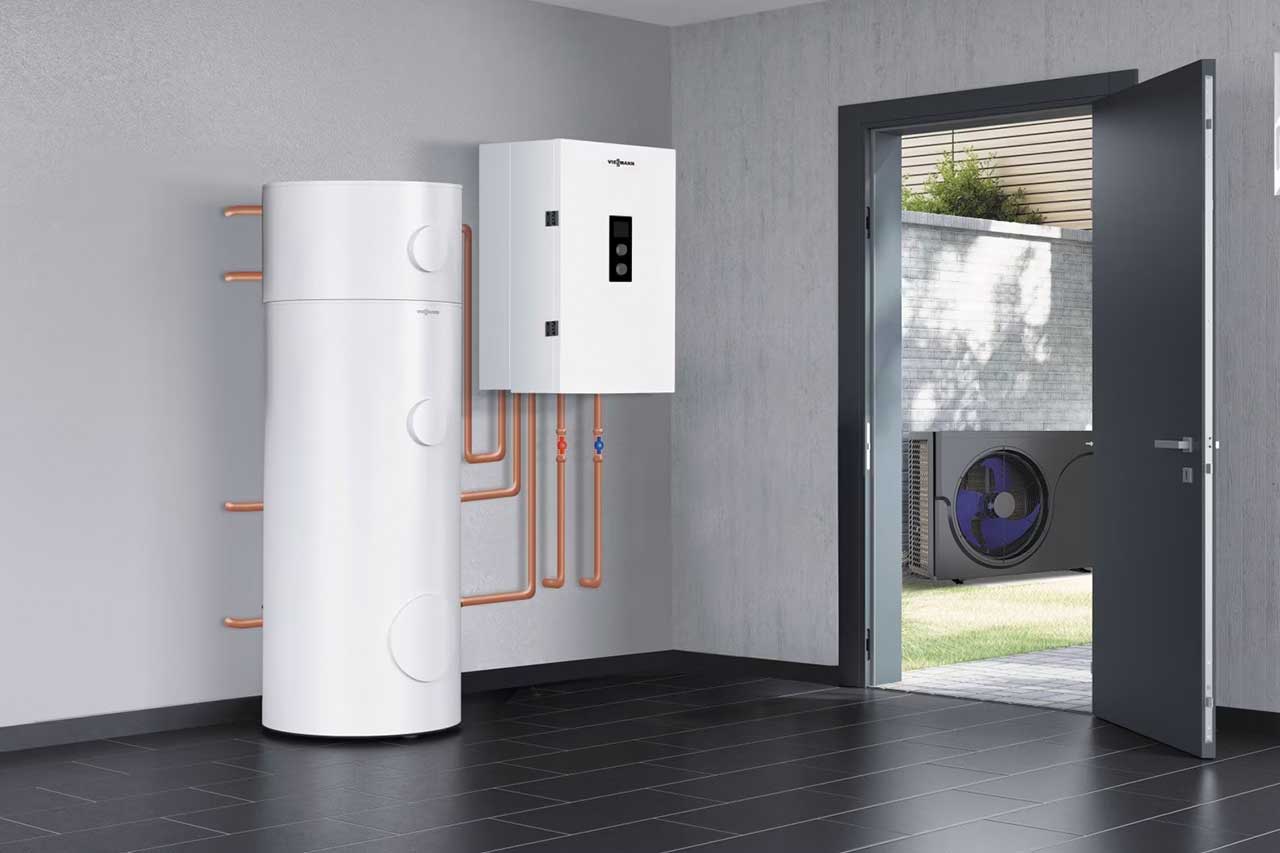Table of Contents:
- How Air-to-Water Heat Pumps Work
- Types of Air-to-Water Heat Pumps
- Factors to Consider When Choosing an Air-to-Water Heat Pump
- Installing an Air-to-Water Heat Pump
- Operating and Maintaining an Air-to-Water Heat Pump
- Cost of Installing an Air-to-Water Heat Pump
- Top Reasons to Switch to an Air-to-Water Heat Pump
Images credits: https://www.viessmann.ca/
Given the escalating energy costs and a growing emphasis, on cutting down carbon footprints Ireland’s housing sector nowadays sees a surge in interest towards air-to-water heat pumps as an environmentally friendly option for keeping homes warm and supplying water efficiently.
These heat pumps operate by harnessing heat from the air and channelling it indoors to warm up radiators or underfloor heating systems while also catering for hot water needs through a cylinder unit. All is achieved with notably lower electricity consumption compared to traditional heating methods, like boilers and immersion heaters.
Some of the top benefits of installing an air-to-water heat pump include:
Lowering your energy bills is possible, with air-to-water heat pumps, which have the potential to cut heating expenses by as 50% in comparison to traditional oil or gas boilers thanks, to their usage of sustainable free heat sources instead of relying on burning fossil fuels.
Using heat pumps can help lower your carbon footprint since they have CO₂ emissions compared to heating options, like traditional furnaces or boilers.
Modern air-to-water heat pumps are dependable and efficient, throughout the year; they function well in freezing temperatures. Provide a continuous stream of warmth and hot water.
Heat pumps that are installed correctly only need upkeep limited to yearly servicing and can last an average of 20 to 25 years without major issues arising.
Versatile heating options and hot water solutions are available, through heat pumps offering heating using radiators or underfloor systems along with integrated hot water tanks, for water heating purposes.
This article offers an exploration of the functioning of air, to water heat pumps and the various options accessible for consumers to choose from when considering their installation in homes in Ireland today – discussing factors to ponder over during installation as well as typical costs involved in both installation and operation while highlighting reasons why they are considered a top choice for energy efficient heating solutions for homes, in Ireland currently.
How Air-to-Water Heat Pumps Work
Air, to water heat pumps function based on a concept. They natural heat, from the outdoor environment and convey it inside to warm up radiators or underfloor heating systems and for heating water in a cylinder. To accomplish this task a refrigerant gas is utilised to extract heat from the air and warms up as a result of it passing through a compressor which elevates its temperature further before conveying this heat to the heating system and then cooling down to repeat the cycle.
Air-to-water heat pumps are more efficient compared to combustion boilers and direct electric heating as they extract heat from the environment at a ratio of 2.5 to 4 times more energy than consumed in electricity. While these systems require electricity to operate the majority of the heat they generate comes from a free source.
Air source heat pumps have the ability to draw heat from the air in zero temperatures as low, as 15°C which allows them to function throughout the year in Ireland and supply both warmth and hot water for your house continuously; however, their effectiveness may decline a bit during severe cold spells due to lower availability of heat, from the air source
Types of Air-to-Water Heat Pumps
In households, there are typically two categories of air-to-water heat pump systems that are commonly used. The split system works by pulling in warmth, from the air using a combination of a fan and fins which are then linked to a hydrobox or heat interface unit located inside the house through pipes.
The hydro box is responsible, for heating water that is used for radiators, underfloor heating systems and the hot water tank. A Monoblock System is a unit located outside that has all the components to extract heat from the air and transfer it indoors to water, which then flows directly to heat emitters and a hot water tank without the need, for a hydrobox.
Split systems tend to be more efficient as only the refrigerant lines enter the building rather than a full hydronic system. Monoblocks are often cheaper, though larger, and louder, and lose more heat through the circulation system.
When choosing which is best for your home, factors like installation space, noise tolerance, and upfront costs may dictate which type is preferable. Our experts can advise on the ideal system for your property.
Factors to Consider When Choosing an Air-to-Water Heat Pump
Choosing the right air-to-water heat pump for your home will depend on the following factors:
Climate Conditions– This is the external temperature and meteorological conditions in your area that will affect the performance of the heat pump. There may be cases where in certain regions of Ireland, models that are optimised for colder conditions are preferred.
Hot Water Demand – The occupancy count and hot water usage patterns will determine the hot water output of the heat pump that is required.
Home Size – For a larger home with more heating demands, a more powerful heat pump is required. Home age, insulation and heat loss need to be evaluated.
Installation Space – Outdoor units require some space, and split systems require room inside for a hydrobox. Also, consider the ease of installation.
Energy Efficiency – More efficient heat pump models may cut down further on long-term running costs, but the cost is a higher upfront cost.
Operating Costs – Installers should take into consideration the electricity prices and the potential savings compared to oil or gas and subsequently recommend a heat pump that is the most cost-effective.
NRM’s heat pump experts undertake very thorough home surveys in order to guarantee that the heat pump specifications and the sizing of the heat pump are appropriate for your heating demand as well as your hot water requirements.
Installing an Air-to-Water Heat Pump
Installing an air-to-water heat pump system involves the following key stages:
Survey – This determines the best locations for the external and internal units as well as the pipe runs
Permits – You may need planning permission for the outdoor unit as well as building regulations approval.
Installation – Outdoor units are often raised into position by a crane, internal units are screwed onto walls and pipework joined.
Commissioning – The system is tested for leaks, proper operation, and efficiency. The heating system is flushed and refilled.
Handover – Homeowners are shown how to use the heat interface panel, the thermostats and other controls.
It is recommended that heat pump installation is carried out by an experienced heating engineer such as NRM Plumbing & Heating. The efficiency of the components is important and therefore, you should not attempt to install the system on your own. If properly installed and maintained, an air-to-water heat pump will heat your home and supply hot water for many years. Service contracts are advised to ensure that systems are kept in peak condition.
Operating and Maintaining an Air-to-Water Heat Pump
Here are some tips on how to get the best out of your air-to-water heat pump system;
- The optimum flow temperature of the heat pump should be set at 60°C or less for the best performance.
- Use the integrated thermostat and controls to control the system. Do not attempt to override the settings frequently.
- For the optimal temperatures, consult the product manual according to the outdoor conditions.
- It is advisable to bleed the radiators at least once a year to remove air that is trapped in the system and prevent uniform heating.
- The outdoor unit should not be blocked by debris, plants or any other objects that may restrict airflow.
- The correct concentration of antifreeze must be maintained in the system.
- If there are any error codes or if there is a change in the performance of the system, it may be a sign of a problem.
- Arrange annual servicing to keep the system maintained to manufacturer specifications.
Following the usage guidelines and maintenance schedule will maximise the performance and lifetime of your heat pump system.
Cost of Installing an Air-to-Water Heat Pump
The costs of installing an air-to-water heat pump system in an average 3-bed home are usually (final costs will depend on your specific requirements):
Equipment: €8,000–€14,000 depending on heat pump brand, size, and specs. Those for higher output models for larger homes are also more.
Installation: Between €6,000 and €8,000 all in, including labour, fittings, and minor building work. Complex installs can be more expensive.
SEAI Grant: €3,500 available off the equipment and install costs through the Better Energy Homes scheme, depending on eligibility.
So, for example, for a typical installation, you could be paying €10,500–€18,500, minus potential SEAI grants. Larger homes may be up to €25,000 without grant deductions. At NRM, we provide free quotes that detail all costs, we can also help with the SEAI grants process.
 Top Reasons to Switch to an Air-to-Water Heat Pump
Top Reasons to Switch to an Air-to-Water Heat Pump
These are the main reasons why more and more homeowners are now selecting air-to-water heat pumps for heating and hot water:
– Lower Bills – It can cut heating bills by more than 50 % compared to fossil fuel boilers thanks to its high efficiency. This is because the installation costs are recovered from the savings made over time.
– Lower Emissions – Heat pumps produce up to four times more energy than they need, and they emit significantly lower carbon emissions. This is better for the environment.
– Constant Comfort – Modern heat pumps are able to preserve the temperature and supply hot water all the year round, even when it is freezing outside.
– Minimal Maintenance – If they are properly installed, many systems will need almost no maintenance at all, other than the annual servicing to ensure that they continue to work efficiently year after year.
– SEAI Grants – Grant eligibility and payments make the upfront costs more affordable. Home energy upgrades can also improve your BER rating.
At NRM Plumbing & Heating our team of heating experts can offer advice on what kind of heat pump is suitable for your home. Our team can help you with the grants process and we’ll also manage the entire installation process for you.
Air-to-water heat pumps are one of the most cost-effective and energy-efficient methods for heating and hot water production in Irish homes. With renewable heat and minimised carbon emissions, they offer environmental and financial benefits compared to fossil fuel boiler systems.
Modern heat pumps deliver constant comfort, even in freezing winter temperatures. With minimal maintenance required, they provide decades of reliable service. To learn more about heat pumps suitable for your home and to get a free quote, contact the experts at NRM Plumbing & Heating today.
Ever wondered about how does an air-to-water heating system work? ….Check out our latest blog post for details.





 Top Reasons to Switch to an Air-to-Water Heat Pump
Top Reasons to Switch to an Air-to-Water Heat Pump